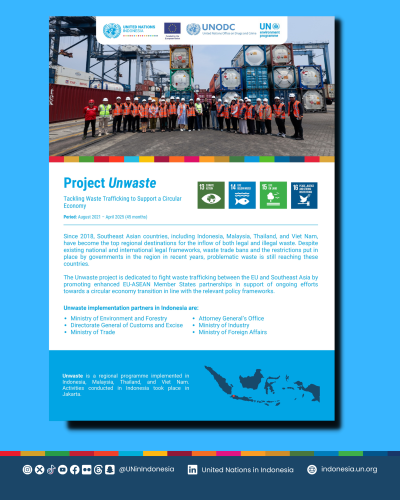Project Unwaste, Tackling Waste Trafficking to Support a Circular Economy - Factsheet

"Project Unwaste - Tackling Waste Trafficking to Support a Circular Economy" represents a pivotal effort to confront one of Southeast Asia's most pressing environmental challenges: the trafficking of waste. Since 2018, countries like Indonesia, Malaysia, Thailand, and Vietnam have grappled with the dual challenge of managing both legal and illegal inflows of waste, despite stringent national and international regulations. Project Unwaste, running from August 2021 to April 2025, is an initiative aimed at curtailing this trend through enhanced cooperation between the European Union and ASEAN member states.
The project focuses on three primary objectives: understanding waste flows between Europe and Southeast Asia, promoting cooperative national dialogues to combat illicit waste movements, and facilitating policy and enforcement dialogues to foster partnerships supportive of the circular economy. These efforts are crucial as they address environmental sustainability and broader socio-economic impacts related to waste management practices.
Implemented by key Indonesian partners including the Ministry of Environment and Forestry, the Directorate General of Customs and Excise, and other critical stakeholders, Project Unwaste has already initiated various activities to achieve its goals. These include study visits, expert group meetings, and working group sessions that collectively aim to build a robust framework against waste trafficking. These actions are designed to not only reduce the volume of illegal waste entering the region but also to strengthen regional capacities for managing waste in an environmentally sound and economically viable manner.
To learn more about the comprehensive strategies and collaborative efforts undertaken by Project Unwaste to support a transition towards a circular economy in Southeast Asia, download the detailed factsheet below.
More: bit.ly/unwasteproject







